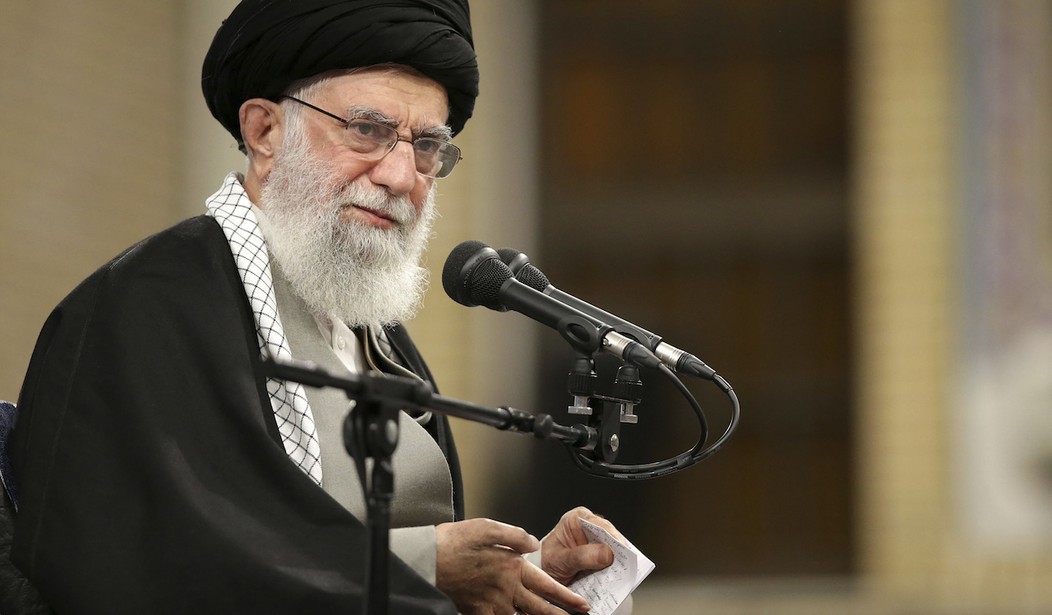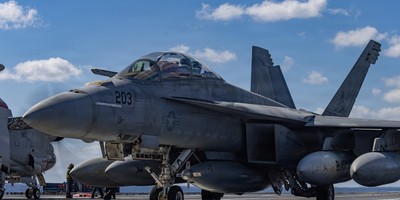It’s a new year, but the news about Iran is not new. The timing of recent rhetoric throughout the Middle East is directly related to renewed nuclear negotiations with Iran. Nobody thinks the Iranians are honest players or can be trusted. But there are world leaders who think that continuing to negotiate, even if the same outcome is likely, is a goal in and of itself.
Included in the rhetoric recently was a blunt statement from Israel’s otherwise diplomatic president that Israel reserves the right to do whatever is needed to keep the Iranians from getting nuclear weapons, and that “all options are on the table.”
A large part of the problem and Israel’s justified concern is that the western secular world does not understand religious fanaticism. If the world knows what’s going on, there’s a sense that it doesn’t care. This parallels the situation in 1981 when, faced with Iraq developing its own nuclear weapon, Israel acted on its own and destroyed the Iraqi nuclear reactor. Israel was condemned, even by the US. But in a short time, the world came around and even thanked Israel.
It’s widely assumed that the statements being made by Israel now are not directed at Iran, but to the US and others. This gives fair warning that when Israel needs to act, it will. And we did.
The million-dollar question is whether Israel will really do something. The answer has many components.
Israel is credited with lots of success in slowing down Iran’s race for the bomb. But so far, Israel has not stopped the Iranian nuclear program cold. These are referred to as tactical successes but strategic failures. Not only has Israel not stopped them, but negotiations have failed, now under three U.S. presidents.
Former Prime Minister Netanyahu is credited with raising the issue, but he failed to create a solution. Interestingly, each setback to the Iranian nuclear program, while notable, also set back the timeline as to when Iran would be able to have a weapon. That had the double-edged effect of Israel saying that there was X time until Iran reached the nuclear threshold, but each time there was a setback in Iran, which prolonged the timeline, a good thing. But this also served to challenge Israel’s intelligence credibility.
Recommended
Recently, U.S. National Security Advisor Jake Sullivan said that the US deadline to reach an agreement in talks with Iran would come “within weeks." European diplomats, meanwhile, supposedly said that these talks are “rapidly reaching the end of the road.” The questions are whether they really mean it, what are the actual deadlines, will it be too late, and if not, what will they do?
What are the answers? Israel does need to keep all options on the table. Sanctions help but are not sufficient alone. Cyber-attacks are important. Diplomacy to a degree. And war needs to be a credible option. But war needs to be the last option, after all other options run out.
If Israel really believes that Iran is on the verge of a nuclear breakout, is Israel prepared to act on its own assuming others won’t? Even in Israel where the assessment is that war may be necessary, there’s also a sense to push it further down the road. But Israelis do feel the gap tightening between Iranian threats and the ability to act on their threats.
Many military questions also remain. Can Israel take out the Iranian nuclear program on its own and with only conventional weapons? What if a first strike is not successful and a large percent of Israeli planes are shot down?
Israel is also preparing for the consequences of attacking Iran closer to home. Plans in northern Israel are being implemented to prepare for what will happen as a result of a possible attack on Iran. Hezbollah has an arsenal of rockets, estimated from “only” 100,000 to as many as 250,000. In parallel to dealing with Iran, Israel needs to be prepared for “7-10 days of thousands of rockets fired from Lebanon.”
Ultimately, there’s a difference between making tactical preparations and a strategic political decision. Making such a decision to attack Iran will be a historic Jewish decision, like Prime Minister Begin’s in 1981. It may all boil down to whether we believe they want to destroy Israel and if yes, Israel needs to act.
And if Iran is on the verge of breakout, Israel’s actions will be based on its understanding of the historic enormity of the decision. The more it does, the fewer restraints there will be, militarily and diplomatically. Unless the U.S. is on board from the outset, it’s likely the U.S. may not be informed until planes are in the air. Could other Arab or Islamic states join Israel? What will be the international outcome? If the U.S. does not participate in an attack, would it support Israel or vote against it in the event of a UN condemnation?
Between the probable military backlash and the inevitable international pushback, Israel is between a rock and a hard place. But if Israel does perceive that the Iranians are on the verge of having the weapons to give action to their words, do look for Israel to keep all options on the table.
As the Jewish sage Hillel said, “If I am not for myself, who will be for me.” The modern application of that in Israel is, “If I am not for myself, who will stop Iran?” Time will tell.
Author's note: For a detailed briefing and analysis, please listen to this powerful conversation with two Israeli experts, Maj. Elliot Chodoff and Dr. Josef Olmert.

























Join the conversation as a VIP Member